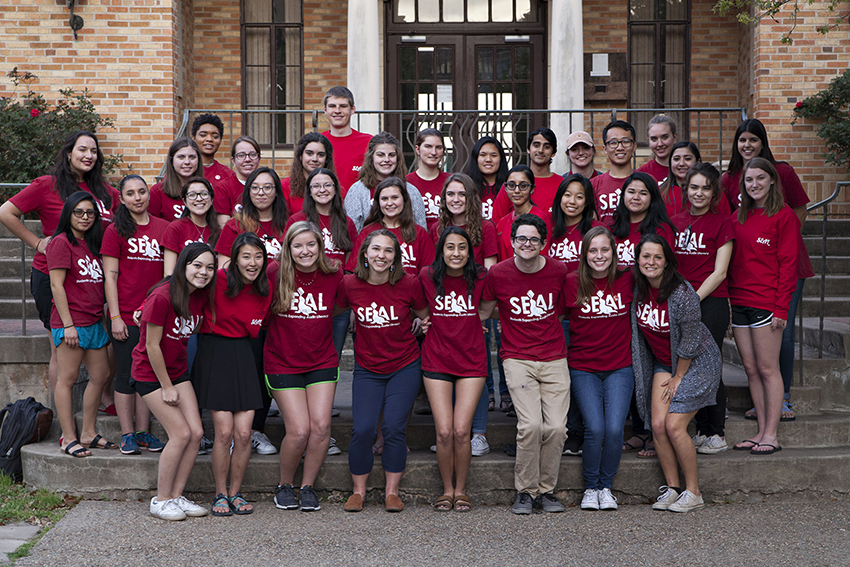Every classroom at marketing senior Roger Lam’s elementary school had iPads and an interactive white board, but when he starting volunteering at local elementary schools in college, most of the schools he visited did not even have projectors.
“It opened my eyes to a lot of things,” Lam said.
Students Expanding Austin Literacy, or SEAL, allows students a chance to both mentor and educate elementary-aged kids in schools with low resources in the East Austin area. Now, they are also an official nonprofit organization.
“Being able to be both a student organization and also a recognized nonprofit feels like a next step into expanding and having a bigger reach,” SEAL vice president Angela Park said.
SEAL will use this new status to widen their influence to other areas such as Houston and Dallas, Lam said.
Lam founded SEAL as part of a Liberal Arts Honors project his freshman year. Currently, SEAL is comprised of 97 student volunteers who are paired with a single student from one of 10 elementary schools for a semester or longer. They spend one hour per week together reading books and establishing relationships.
“We don’t use flashcards or any really professional literacy tactics,” Lam said. “We just hope the kids fall in love with us and in turn fall in love with reading.”
Of Austin Independent School District’s 84 elementary and pre-kindergarten campuses, 61 fall under Title I classification in the 2017–2018 academic year. Title I schools are defined by the Texas Education Agency as campuses with a student population in which at least 40 percent are low-income.
SEAL runs two programs, SMART Kids and Reading Buddies. SMART Kids volunteers with larger groups in residential communities instead of in the classroom. Reading Buddies focuses on individual interactions with students typically in first to third grade.
Park said the problems students complain about can be as big as being evicted from their home or as small as having a fight with their brother. Park said being so young, they still have a light-hearted attitude.
“Even though they’re in these communities where they have fewer resources, they don’t really care,” said Park, a management information systems junior. “They’re still kids.”
Students who don’t read proficiently by third grade are four times more likely than proficient readers to not receive a high school diploma, according to a 2011 study by the Annie E. Casey Foundation.
“We don’t necessarily change the statistics, but we show the kids they don’t have to be one,” Park said.
Middle Eastern studies freshman Emma Hofmann said sessions with her kindergartener through Reading Buddies can focus more on reading or on playing, depending on what the students needs most that day.
“I enjoy watching her struggle and get discouraged and then come back,” Hofmann said. “Kids just fall through the cracks. Sometimes (they) need someone to come in and tell them, ‘You are smart.’”
Lam said he wanted to create a chance for both college and elementary students to interact and bond in addition to spreading literacy.
“I think a lot of people just love working with kids,” Lam said. “You can be exhausted (from studying and stress), but if you walk into a room of kids smiling ear to ear to see you … it’s just the best feeling ever.”





















